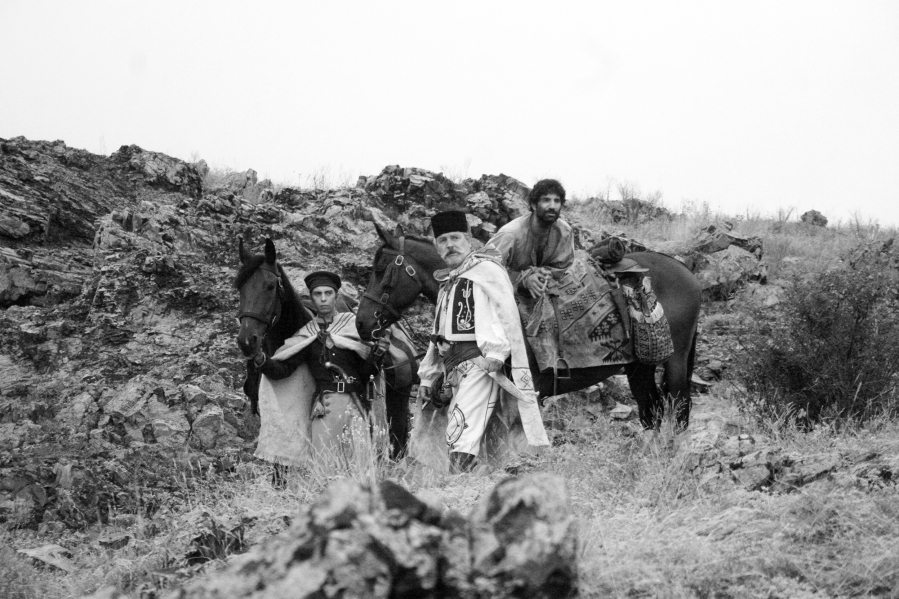Welcome to Walachia (aka Romania) in 1835, where life is nasty, brutish and brutish.
Welcome to the land of “Aferim!” — a place where the social practices are as harsh as the dusty, desolate landscape in which this Romanian-language picture is set.
Feudalism is alive and well here, as is slavery. The slaves are Gypsies, abused, degraded, disparaged as “crows” and, when they flee their servitude, hunted relentlessly until they can be captured and returned to their owners who mete out punishments that are barbaric in the extreme.
“Aferim!” tells the tale of such a pursuit, conducted by a lawman/bounty hunter named Costandin (Teodor Corban) and his son, Ionita (Mihai Comanoiu), a callow teenager. Their quarry is Carfin (Cuzin Toma), a Gypsy accused of committing adultery with the wife (Mihaela Sirbu) of his owner, a powerful local ruler called a boyar (Alexandru Dabija).
Father and son first appear as two riders on a high ridgeline, suggesting a link to a classic Western. When they descend, director/co-writer Radu Jude (Florin Lazarescu shares screenplay credit) plunges the audience into a society riven by prejudices of all kinds. Turks, Russians, Jews, gays, Gypsies: All are despised with equal passion, as the pair’s encounters with people along the way make volubly clear. Costandin, a man of his times, embraces much of the toxicity; his son, less closed-minded sort, not so much.



